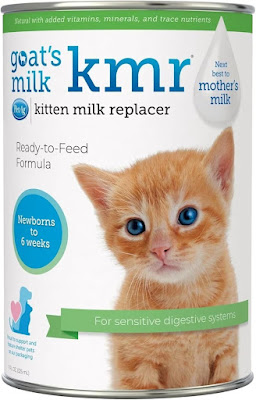Rescuing Stray Kittens? Here's the Kitten Care Checklist You Can't Miss
Welcoming a stray kitten into your life is an incredibly rewarding experience. These tiny, vulnerable creatures often rely on the kindness of humans to thrive. In this guide, I'll walk you through everything you need to know to care for a stray kitten. Along the way, I'll share my own experiences and introduce you to some essential products that have made a big difference in my kitten rescues.
This post may contain affiliate links at no extra cost to you. Please read our full disclosure here to find out more.
1. Assessing the Situation Before Rescuing
Before you scoop up a stray kitten, it’s essential to assess the situation. One spring evening, I stumbled upon a litter of kittens nestled under a bush. My first thought was to grab them all, but experience had taught me to pause. Sometimes, a mother cat might be nearby, foraging for food.
Steps to Assess:
- Observe from a distance for a few hours to see if the mother returns.
- Check the kittens’ condition. Are they warm and plump or cold and lethargic?
- If you’re sure the mother isn’t coming back, it’s time to step in.
In my case, the mother cat didn’t return, and the kittens looked weak. That’s when I decided to bring them home.
2. Immediate Actions After Rescue
Once you bring a stray kitten home, immediate care is crucial.
1. Handle Gently: Stray kittens are often scared and disoriented. Speak softly and avoid sudden movements.
2. Check for Injuries: Look for visible wounds, fleas, or signs of illness.
3. Keep Them Warm: A heating pad or warm towel can help regulate their body temperature, especially if they are very young.
4. Offer Hydration: Dehydrated kittens may need an electrolyte solution like Pedialyte. Avoid cow’s milk, as it can upset their stomachs.
One of the kittens I rescued was severely dehydrated, so I used a syringe to offer small amounts of water. It’s incredible how a little care can make such a big difference!
3. Kitten Care Essentials for Stray Rescues
Caring for stray kittens involves several steps, from feeding to providing a comfortable space.
a. Feeding Guidelines
Newborn kittens require formula designed specifically for them. A kitten’s age determines their feeding needs:
- 0-4 weeks: Bottle-feed kitten formula every 2-3 hours.
- 4-8 weeks: Introduce wet kitten food and gradually reduce bottle feeding.
b. Hygiene and Grooming
Stray kittens are often infested with fleas or have matted fur. Use a flea comb to gently remove fleas and bathe them with kitten-safe shampoo if needed.
c. Shelter and Comfort
Create a warm, secure area for the kitten. A small carrier or box lined with soft blankets works well. Place the setup in a quiet space to help them feel safe.
Essential Products for Kitten Care
When I first started rescuing kittens, I realized how important the right tools and products are. Here are three I’d recommend:
1. K&H Pet Products Thermo-Kitty Heated Pet Bed
This heated bed provides a cozy space to keep kittens warm, which is especially important for very young or sickly kittens.
Why I Love It: It’s energy-efficient and has a removable cover for easy cleaning.
Check it out on Amazon to give your rescued kitten the warmth they need!
2. PetAg KMR Kitten Milk Replacer Powder
A high-quality milk replacer specifically designed for kittens. It’s easy to mix and mimics the nutrients found in a mother’s milk.
Why I Love It: It’s been a lifesaver for bottle-feeding newborns.
Shop it on Amazon to ensure your kitten gets the best nutrition.
This comb helps remove fleas and debris from a kitten’s fur gently.
Why I Love It: It’s effective yet gentle enough for fragile kittens.
Grab it on Amazon and keep your kitten flea-free and comfortable.
4. Veterinary Care for Stray Kittens
After the initial care, a vet visit is essential. The vet will check for:
During one of my rescues, a tiny kitten named Bella was diagnosed with a respiratory infection. The vet’s timely intervention saved her life.
5. Socialization and Behavioral Care
One of my favorite memories is watching a shy kitten named Luna transform into a playful, affectionate companion over weeks of gentle care.
6. Long-Term Kitten Care Planning
Once the kitten is stable, think about their future:
7. Common Challenges and Solutions in Stray Kitten Care
Rescuing stray kittens comes with challenges:
Rescuing stray kittens is a journey filled with challenges and rewards. By following this checklist, you can give these vulnerable little ones a fighting chance. With the right care, love, and resources, stray kittens can thrive and bring joy to your life.
If you’ve ever rescued a stray kitten, I’d love to hear your story. Share your experiences in the comments and help spread the word about the importance of stray kitten care. Let’s make a difference together!




Comments
Post a Comment